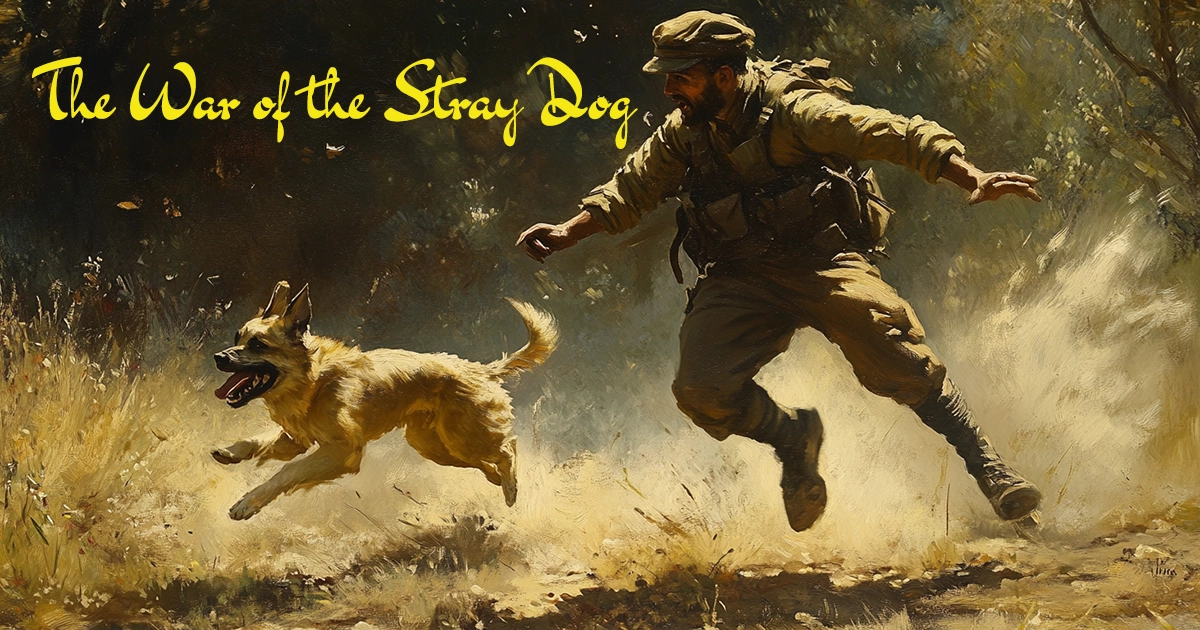

History is filled with peculiar events that seem almost too strange to be true. One such event is the War of the Stray Dog or the Incident at Petrich, a conflict that erupted between Greece and Bulgaria in 1925 over a seemingly trivial incident involving a stray dog. This bizarre episode highlights the fragile nature of peace in the tumultuous Balkans during the early 20th century.
On October 18, 1925, a Greek soldier stationed on the border near the town of Petrich, Bulgaria, chased his stray dog across the boundary line. In pursuit of his pet, the soldier inadvertently crossed into Bulgarian territory. Tensions were already high between the two nations due to ongoing territorial disputes, and the presence of a Greek soldier on Bulgarian soil was seen as a provocation.
In response, Bulgarian border guards opened fire, killing the Greek soldier. The situation quickly escalated as both sides accused each other of aggression and provocation. Within hours, skirmishes broke out along the border, leading to a full-blown military confrontation.
The Greek government, led by the assertive and nationalistic General Theodoros Pangalos, was outraged by the killing of the Greek soldier. Pangalos, known for his aggressive stance and militaristic policies, demanded an immediate and formal apology from Bulgaria. He also insisted on substantial compensation for the soldier's death and for what he perceived as a breach of Greek sovereignty. These demands were coupled with a significant mobilization of Greek military forces, indicating Greece's readiness for a possible large-scale invasion of Bulgaria.
Bulgaria, under the leadership of Prime Minister Alexander Tsankov, refused to comply with the Greek demands. Tsankov's government viewed the incident as a justified defensive action against an unauthorized incursion into their territory. Bulgaria's refusal to apologize or offer compensation stemmed from a sense of national pride and a desire to assert its own sovereignty and territorial integrity. The Bulgarian leadership also began to prepare for a possible escalation by reinforcing its border defenses and mobilizing its own military units.
On October 22, 1925, tensions reached a breaking point. Greek troops, driven by a mix of nationalistic fervor and a desire to retaliate for the perceived Bulgarian aggression, crossed the border and occupied several Bulgarian villages near Petrich. This aggressive move was meant to demonstrate Greek resolve and to compel Bulgaria to acquiesce to its demands.
The Bulgarian army, however, was not passive in the face of this incursion. Bulgarian troops engaged the Greek forces, and fierce fighting erupted. The initial skirmishes quickly escalated into more extensive and brutal engagements, with both sides suffering significant casualties. The hilly and forested terrain of the border region made the fighting particularly intense and difficult, contributing to the mounting losses on both sides.
As the conflict continued, the situation threatened to spiral into a larger war. Reports of the fighting, including civilian casualties and the destruction of property, began to circulate, heightening the sense of urgency and alarm within the international community. The local populations on both sides of the border were caught in the crossfire, suffering from the violence and instability.
The escalation of the conflict also had significant political ramifications within Greece and Bulgaria. In Greece, General Pangalos faced both support and criticism for his aggressive stance. Some saw his actions as a necessary defense of national honor, while others feared the potential consequences of a protracted war. In Bulgaria, Prime Minister Tsankov had to balance the need to defend national territory with the risk of further escalation and international isolation.
The conflict's intensity and the potential for it to draw in other regional powers created a volatile and precarious situation. The risk of a wider Balkan war, with its historical context of ethnic and territorial disputes, loomed large. Both Greece and Bulgaria faced increasing pressure from the international community to find a resolution and avoid further bloodshed.
The international community, particularly the League of Nations, was alarmed by the rapid escalation of the conflict. The League of Nations, an intergovernmental organization aimed at maintaining world peace, swiftly intervened to mediate between the two countries. Both Greece and Bulgaria were members of the League, and their representatives were summoned to negotiate a ceasefire.
After intense diplomatic efforts, a ceasefire was brokered on October 29, 1925. The League of Nations dispatched a commission to investigate the incident and mediate a resolution. The commission's findings held Greece primarily responsible for the conflict due to its aggressive response. Greece was ordered to withdraw its troops from Bulgarian territory and pay reparations amounting to 45,000 pounds sterling.
The War of the Stray Dog was a brief but intense conflict, lasting less than two weeks. Despite its seemingly trivial origin, the incident had significant implications for regional stability and international diplomacy. The successful intervention by the League of Nations demonstrated the potential for international organizations to mediate conflicts and prevent larger wars.
For Greece and Bulgaria, the conflict left a lasting impact on their bilateral relations. The border skirmish underscored the volatility of the region and the importance of maintaining diplomatic channels to resolve disputes. In the years that followed, both nations made efforts to improve their relations and prevent similar incidents from occurring.
The War of the Stray Dog remains one of the most unusual and oddly named conflicts in history. It serves as a reminder of how seemingly insignificant events can trigger larger conflicts, particularly in regions with underlying tensions. The incident also highlights the crucial role of international diplomacy in maintaining peace and resolving disputes, even in the most unexpected of circumstances.